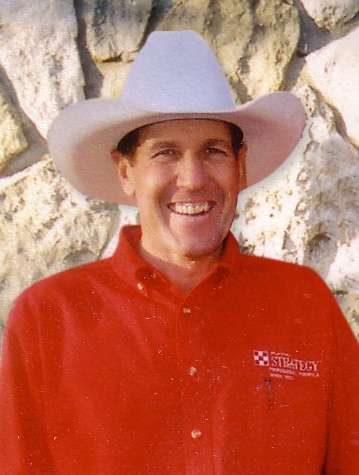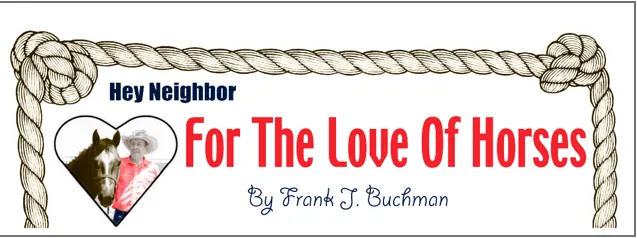Transitioning from military service to civilian life sometimes creates mental difficulties and hardships for veterans.
“For our freedoms we so cherish in this country, we are most indebted to those service men and women,” said Melissa Wahl.
To assist in that important transition, S.A.V.E. Farm was started. “One of the best ways to help those who have served is an opportunity to work in agriculture,” Wahl said.
S.A.V.E. Farm stands for Servicemember Agriculture Vocation Education. “Near Riley, the 308-acres operation is a five-month program to help veterans transition into agriculture,” explained Wahl, farm manager.
“It is a healing process for those who have served our country,” Wahl continued. “There are many areas of agriculture which they can study and learn about through firsthand experiences.”
Concept for S.A.VE Farm began nearly a decade ago. Retired Colonel Gary Lagrange and his daughter saw results from training beekeepers and providing therapy to soldiers at Fort Riley.
A non-profit was formed in 2016 by a diverse group of veterans, farm and ranch experts and educators.
“We have received Department of Agriculture grants and major support from John Deere corporation,” Wahl said. “We also get educational support from the Board of Regents.”
The program provides therapy as needed and hands-on teaching to veterans and transitioning servicemembers through experienced professionals. “They learn how to successfully and sustainably manage cropland, livestock animals, orchards, horticulture, and beekeeping,” Wahl explained.
While the program focuses on veterans, it is open to beginning farmers and anyone interested in agriculture.
Scholarships are available to help cover part of the tuition. “The farm is working towards becoming eligible to accept veteran students’ GI Bill benefits,” Wahl said.
In partnership with Cloud County Community College, the first students were enrolled in 2019. “Then coronavirus shut us down like it did much of the country,” Wahl said. “We are now just graduating our first class of three students.”
With agriculture production certification, they will become involved in various phases of agriculture. “A couple plan to work in area agriculture operations, and then possibly eventually develop programs of their own,” Wahl indicated.
Richard Linton, new president at Kansas State University in Manhattan, was recently welcomed by S.A.V.E. Farm
“We had a program in one of the farm hay meadows discussing the opportunities provided here at S.A.V.E Farm,” Wahl said. “Mr. Linton is the 15th president serving the university.”
Several S.A.V.E. Farm affiliates were represented at the noon hour session. Among them were The Nature Conservancy, Department of Agriculture (USDA), Natural Resource and Conservation Service (NRCA), Kansas Association of Conservation Districts (KSCD), and Farm Service Agency (FSA).
“The Riley County Extension Service has been a big help in developing our programs and was also represented,” Wahl said.
While some of the cropland on the farm needed conservation repairs, the Kansas Land Improvement Contractors (KLICA) provided that service. “They did that free gratis, which we appreciate very much, and also acknowledged that group during the program,” Wahl continued.
To give the group a more authentic feeling of Flint Hills ranching, four representatives of the Kansas Horse Council (KHC) rode horseback in the pasture. Among them were Justine Staten, KHC executive director, and Kallie Emig, KHC president.
“We appreciated that group’s participation as it helped emphasize the cow-calf operation we have in our program,” Wahl said.
Appropriately, a real chuck wagon dinner featuring Hereford beef burgers and cowboy beans was savored by the group.
“It’s a win-win opportunity for all of us. For so very many,” Wahl added
S.A.V.E. Farm sponsors farm tours on several Fridays during the growing season. “They are to familiarize participants with a diverse variety of agribusiness operations and methods,” Wahl said. “They also visit local crop or animal farms and agribusiness programs.”
Printed S.A.V.E. Farm Mission is “To be a nationally-recognized farming, ranching and agribusiness training and healing program for veterans and others.”
The group’s Vision is: “To serve as a sustainable model for hands-on agriculture and agribusiness training and education. That’s integrated through behavioral health therapy, with an emphasis on servicemembers, veterans, and their families.
“Our values are a visible statement of who we are and what we stand for,” Wahl quoted. “They serve as our behavioral compass. We believe that our commitment to live out our values, mission, and vision make us a premier agricultural training organization.”
They have received the HIRE Vets Platinum Medallion award from the U.S. Department of Labor for the hiring, retention, and training of military veterans all over the country.
Tod M. Bunting, retired Air Force Major General, is chairman and chief executive officer of S.A.V.E. Farm Board of Directors.
Additional directors include Wahl, Jason Tucker, Rob Manes, John Farley, Ken Woods, and Jennifer Graham, Eric Peck, Joel Anderson, Susan Metzger, Pat Murphy, Lucinda Stuenkel, John Armbrust, Tiffany Cutting, Ken DeVan, Don Teske, and Bruce McMillan.
Further information can be found by calling 785-775-1212, or at [email protected].
CUTLINES
S.A.V.E. Farm (Servicemember Agriculture Vocation Education) program to help in transitioning individuals from military service to civilian life recently hosted a noon event at the 308-acres Riley County farm. (S.A.V.E Farm photo)
Tod M. Bunting. chairman and chief executive officer of S.A.V.E. Farm Board of Directors, welcomed Kansas State University’s new president Richard Linton during a recent program at S.A.V.E Farm near Riley. (S.A.V.E Farm photo)
Jon Ungerer, executive director of the Kansas Land Improvement Contractors Association (KLICA), spoke at a recent S.A.V.E. Farm program. Representative Mike Dodgson, retired Army lieutenant general, and Kansas State University Provost Charles Taber were among those attending. (S.A.V.E Farm photo)
To give the S.A.V.E. Farm program at Riley a more authentic feeling of Flint Hills ranching, four representatives of the Kansas Horse Council (KHC) rode horseback in the pasture. (KHC photo)





